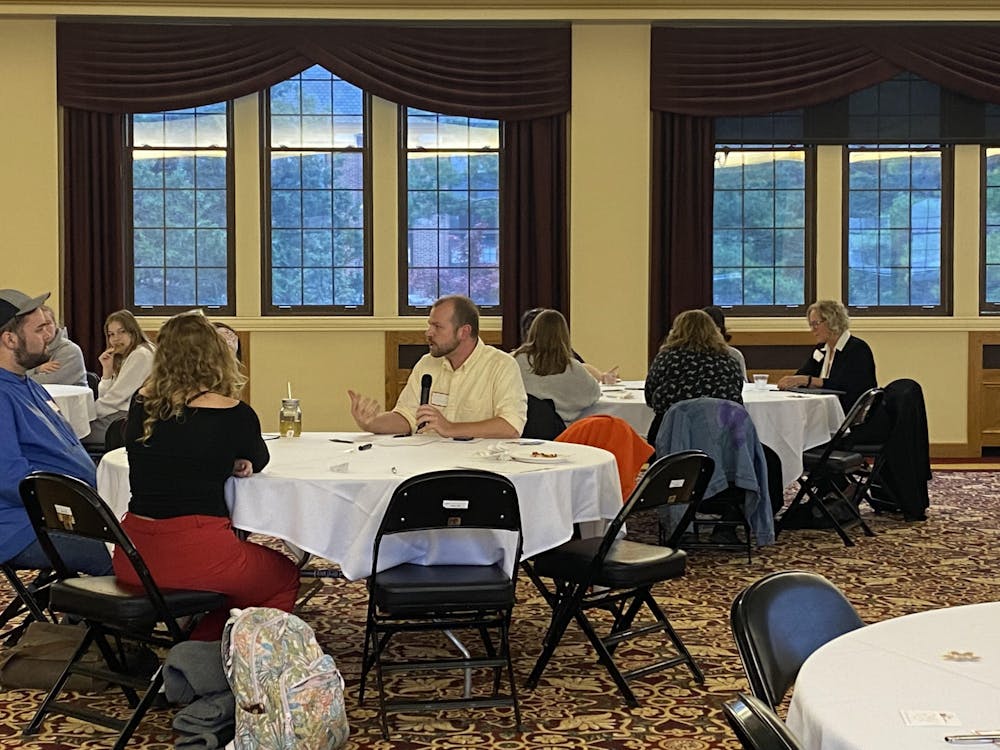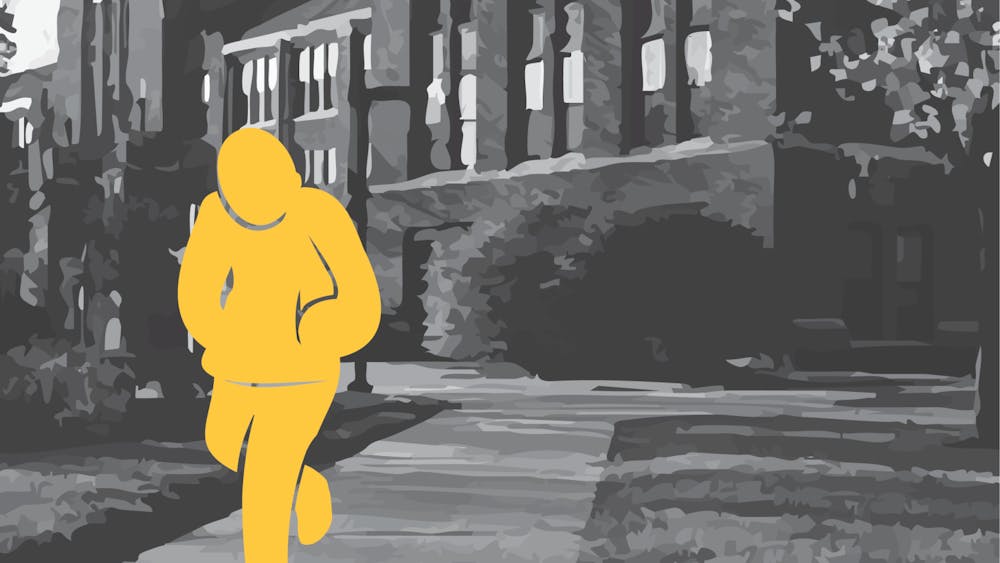Conversations that matter: 'Who really gets affirmative action?'

Bryan Whitledge (center), an archivist for university digital records in the Clarke Historical Library, participates in a group discussion during a Conversations that Matter event, Sept. 28 in the Powers Ballroom.
When speaker Angela Guy-Lee opened the Conversations That Matter event Tuesday at 6 p.m., the meeting fell silent.
The topic of affirmative action is a heavy one, and as she clicked through her PowerPoint presentation and gave her points, the crowd soaked in the information and she let them sit with it for a moment before the true conversation began.
The event held virtually over WebEx and had about 20 participants. The virtual aspect was experimental, according to Danny McQuarters Jr., Assistant Director of the Office for Institutional Diversity, Equity and Inclusion.
"People liked it when we did it virtual in the past," he said. "So we're testing those waters again."
The event was separated into three unique sections - first, Lee's presentation, second, breakout rooms consisting of a facilitator and four participants, and finally the closing discussion in which anyone could ask questions regarding the subject.
Students were required to turn their cameras off as Lee gave her speech, in which she addressed the history of affirmative action in our country and various misconceptions around affirmative action in education.
"You'll see it's not just about race," she said. "But the people who want to challenge affirmative action make it about race."
Lee pulled from various laws, codes, and statues within the country's history, including policies from John F. Kennedy and Lyndon B. Johnson's presidencies.
She also talked about three cases in Michigan's history: Grutter v. Bollinger, Gratz v. Bollinger, and Proposal 2, the latter being the ballot initiative in 2006 that banned affirmative action in the state.
"This is critical to understand," she said. "I still hear people say 'So-and-so took my spot,' but it's been banned since 2006."
Many students said they weren't aware affirmative action was banned in Michigan, and they felt it wasn't prominently discussed at CMU. This was a sentiment echoed by Donnesha Blake, the Director of Diversity, Equity, and Inclusion for the College of Medicine at CMU.
"In my role at a med school and the underrepresented groups in it, we've had to think about our strategies and how to move forward regardless," Dr. Blake said. "It's still affecting our programs."
The way CMU has been navigating it, she says, is by using "proxy terms," or using racial categories vaguely, such as "low income" or "first generation students" to avoid directly mentioning race. The usage of these terms vary depending on the school and their location.
When it comes to the misconceptions around affirmative action, Lee started by showing the data of who affirmative action really benefits the most. She cited an article by Time Magazine in 2013, which revealed that white woman have benefited disproportionately more from affirmative action than their black counterparts, not just in education but in the workplace as well.
Another point Lee brought up was "legacy admissions," which is when students are admitted into a college because their parents or grandparents graduated from that college.
"Thirty percent of the freshman at Harvard, Princeton, Yale, Columbia, they're all legacies," she said. "Five percent of every student that applies to Harvard get in. Thirty percent of that five percent is compromised of legacies who are really taking other people's spots.
"It's not people who look like me, right? Unless their parents went to Harvard Undergrad. It's not people who look like me, but that's never part of the discussion because a good way to create a wedge in this whole conversation is to say we're giving Black and Brown people unfair advantages when that is not the case."
Questions were raised near the end of the meeting about what CMU could do to increase diversity on campus. Opinions differed, with some advocating for more resources like grocery stores and salons while others suggested the school look at more diverse areas for recruitment.
Despite these differences, most agreed that campus diversity should be considered at worked on.
"I think these are the kinds of questions academic institutions should be asking," Dr. Blake said. "Putting themselves in other people's shoes and seeing what they see."
For students who missed out on attending this event or simply dislike virtual events, McQuarters briefly discussed their next event "Soup and Substance," which will provide food and conversation on civil rights and African voices with human rights activist and professor Dr. Maureen Eke. Those interested in this upcoming event can RSVP here.






